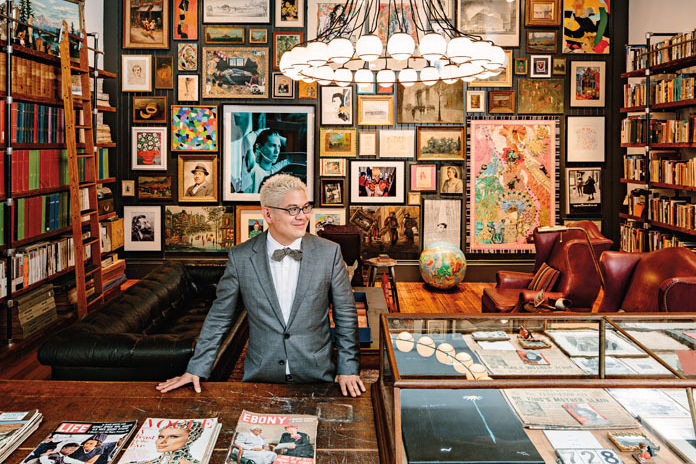How Pink Martini Became a Portland Export Worth Millions

“JE NE VEUX PAS TRAVAILLER.”At Pink Martini’s downtown office, the French phrase meaning “I don’t want to work” glows in gold above the door. Consider it irony: the band founded by piano player Thomas Lauderdale in 1994 has grown into an intricate international business. The September release of its eighth record, Get Happy, will build on worldwide album sales of more than 3 million. With no major label, the band relies on 13 licensors in various countries. “You build long-term relationships,” says Bill Tennant, Pink Martini’s business manager. “They know how to work in their own territories in a way that we couldn’t.”
THE PEOPLE: The band employs 12 core musicians, with a few others who join in for selected performances. Four crew members join for tours, up to six months a year. Five employees staff the Portland office. “Thomas is proud that this band has allowed musicians to buy their own homes,” Tennant says.
THE PINK PORTFOLIO: Broad influences—pop, jazz, cabaret—give the band a diverse appeal. In 2013, Pink Martini projects it will generate 18 percent of its total income by playing with symphony orchestras. Private shows can also generate significant revenue: 14 percent of the band’s total haul for 2012, for example.
THE ALBUMS: The sparkly debut Sympathique has sold over a million copies since 1997. After a seven-year delay, pent-up demand pushed the 2004 follow-up, Hang On Little Tomato, to 750,000 copies. Starbucks carried 2010’s Joy to the World for two holiday seasons. “That’s one of the few places left that can sell large quantities of albums,” Tennant says. “We would sell 120,000 copies of that record in a holiday season, and 80,000 we sold at Starbucks.” A 2011 collaboration with Japanese superstar Saori Yuki, 1969, hit no. 2 on the Japanese charts and sold more than 500,000 copies in that country alone.
THRIVING IN THE POST-DIGITAL MUSIC INDUSTRY: “We’re not really faddy,” Tennant says. “We have a huge generational range of fans, and many are people who still want a physical product. But record stores aren’t in their neighborhoods like they used to be. You have to be more creative to help people find your music.”
THE LOCAL ROOTS: The band’s distributor Allegro/NAIL, product manager A to Z Media, and graphic designer Mike King of Crash Design are all based in Portland.




